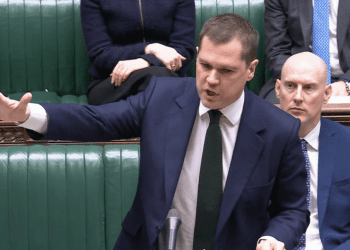As party conference season concludes and MPs and peers return to Westminster, attention will turn to the next major date in the political calendar: 26 November – budget day.
In the midst of what will no doubt be ever-increasing levels of speculation about what actions could be taken, two realities will be at the forefront of the chancellor’s mind – money is tight, and demand for it is fierce.
Nowhere is this more apparent than in relation to healthcare and the NHS. Just a few months ago, the government unveiled the 10-Year Health Plan, a revolutionary paper to update the NHS and improve patient experience and outcomes whilst providing more support for staff. But these changes require funding, and one of the prevailing narratives is that there is little money to spare in the existing health budget.
However, there is one area where the government can make simple, efficient and fast reforms, which will free up significant sums without impacting frontline services or staff – clinical negligence.
It is not a headline topic, but it is one that involves large amounts of money – £3.1 billion in the last financial year alone, according to NHS Resolution. That is more than the entire budget for the Cabinet Office (£1.9 billion), the winter fuel allowance (£1.25 billion), and government farming subsidies (£2.5 billion).
Concerningly, this figure is not an aberration, but part of an ongoing trend of ever-rising clinical negligence costs. The total has doubled in just 10 years, and the figure is set to reach well over £4 billion a year by 2030. The government has stated that this is unsustainable, and it is clear from having attended all three of the main party conferences in recent weeks to discuss this with MPs and peers that this is the prevailing view in parliament too.
Clinical negligence costs rose by 10% in the last financial year. One may assume that this is due to a decline in patient safety, but the data shows that this is simply not the case. Between 2023/24 and 2024/25, the number of incidents resulting in payment increased by less than 3%. This is not the driving force. Other factors are at play. So, what are they? The answer, at least in part, is the rising legal costs involved. During this time period, claimant legal costs paid by the NHS to claimant lawyers increased by almost 14%. Approximately £1 in every £5 the NHS pays goes not to claimants, but to their lawyers. Overall, when you consider payments to claimant lawyers and the NHS’s own defence costs, legal fees came to over £800 million a year.
The spread in the proportion of legal costs is even more staggering. NHS Resolution has found that for lower value claims (those where claimants get up to £25,000), on average legal fees for claimant lawyers were over £27,000 in 2024/25, up from over £26,000 in 2023/24.
Fixed recoverable costs (FRC) has long been advocated by the Medical Defence Union (MDU) as a solution. In such a system, there would be a set amount of legal costs that can be claimed back from the losing party by the winning party. This would stop these farcical statistics relating to lower value claims. Based on the government’s own forecasts, it would save nearly £500 million over a 10-year period if introduced for claims valued up to £25,000. If this threshold were increased, even more would be saved.
Something must, and hopefully will, change. In the 10-Year Health Plan, it was announced that David Lock KC had been commissioned to provide advice to the government about how to address the rising legal costs in clinical negligence, ahead of a review by the department in the autumn.
At each of the party conferences, there was consensus that spending such vast sums on clinical negligence needs to be addressed, and soon. The political will is there. With the budget rapidly approaching, calls for funding in different areas will only become louder. Addressing the rising legal costs through implementing FRC is something that is efficient, quick, carries cross-party support, and would not involve cutting frontline services. Now is the time for the government to enact this change, to protect the NHS from an unsustainable financial burden, whilst ensuring patients and staff continue to benefit from a health service fit for the future.
Politics.co.uk is the UK’s leading digital-only political website. Subscribe to our daily newsletter for all the latest news and analysis.
The post Frontline NHS services have no money to spare – here’s where to find it appeared first on Politics.co.uk.
































